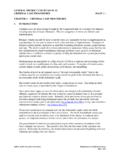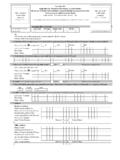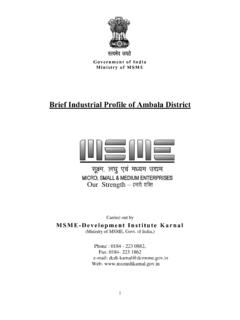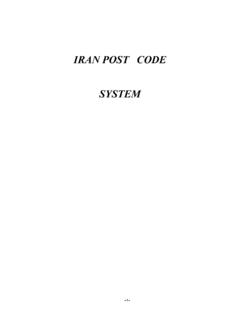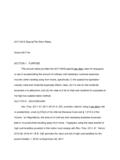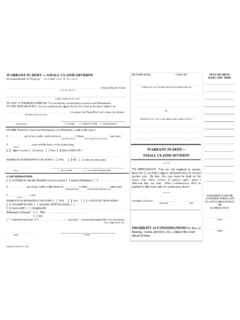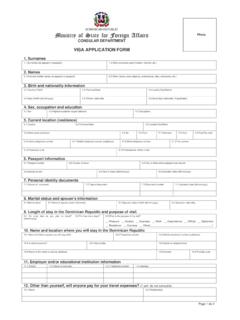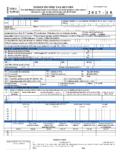Transcription of Zoning Code Variation Guidelines for Particular …
1 Zoning code Variation Guidelines for Particular hardship and Practical Difficulty Criteria Seeking a Variation is a legal process that allows property owners to build structures or use land in a way that is contrary to the local Zoning regulations. variations are meant to be used sparingly. Granting a Variation should be based on a practical difficulty or a Particular hardship that is directly related to the property and related uses. The Glen Ellyn Zoning code reads: The Zoning Board of Appeals shall not recommend, and the Village Board shall not vary, the provisions of this Zoning code , except in cases where there are practical difficulties or Particular hardship in the way of carrying out the strict letter of any regulation of this Zoning code relating to the use, construction or alteration of buildings or structures or the use of land.
2 It is very important to consider what constitutes a practical difficulty or Particular hardship . Unfortunately, there is more information about what is not a practical difficulty or Particular hardship than there is to define one. This is probably because there are an infinite number of Variation probabilities and scenarios. The courts have ruled that a practical difficulty or Particular hardship cannot be self created, cannot be just showing that the property would be worth more if a Variation were granted, and it cannot be just a demonstration that a property is better suited for a use that is prohibited than a use that is permitted.
3 In trying to define the practical difficulty or Particular hardship the person making the decision on whether or not to support the variance will need to evaluate if: 1. The property in question cannot yield a reasonable return if permitted to be used only under the conditions allowed by the regulations governing the district in which it is located; or 2. The plight of the owner is due to unique circumstances; and that the Variation , if granted, will not alter the essential character of the locality;. The first test above essentially applies to the variety of uses that could be developed on the land.
4 The applicant or owner must show more than a loss. The applicant or owner must demonstrate that there would be a loss or lack of reasonable return from each and every permitted use on the property. The second test implies that the hardship conditions shall not be generally applicable to a similar situation in the same Zoning district. If that were the case, then the Zoning of the district would be materially changed. Uniqueness relates to hardship , which refers to the land and not to the personal circumstances of the applicant or owner. Furthermore, the Zoning Board must also consider other standards prescribed in the Glen Ellyn Zoning code when deciding on variations : 1.
5 That the Particular physical surroundings, shape or topographical condition of the specific property involved would bring Particular hard-ship upon the owner as distinguished from a Hardships and Practical Difficulties August 23, 2006. Page 2. mere inconvenience, if the strict letter of the regulation were to be carried out;. 2. That the conditions upon which the petition for Variation is based would not be applicable generally to other property within the same Zoning district;. 3. That the purpose of the Variation is not based exclusively upon a desire to make more money out of the property;. 4. That the alleged difficulty or Particular hardship has not been created by any person presently having an interest in the property or by the applicant.
6 5. That the granting of the Variation will not be detrimental to the public welfare or injurious to other property or improvements in the neighborhood in which the property is located;. 6. That the proposed Variation will not: a). Impair an adequate supply of light and air to adjacent property;. b). Substantially increase the hazard from fire or other dangers to said property or adjacent property;. c). Otherwise impair the public health, safety, comfort, morals or general welfare of the inhabitants of the Village;. d). Diminish or impair property values within the neighborhood;. e). Unduly increase traffic congestion in the public streets and highways.
7 F). Create a nuisance; or g). Result in an increase in public expenditures;. 7. That the Variation is the minimum Variation that will make possible the reasonable use of the land, building or structure. A Zoning Variation runs with the land indefinitely. This reinforces that variations should not be granted based on personal circumstances; while the people eventually will go away, the Variation does not. The New York Supreme Court defined a variance as: An authority to a property owner to use the property in a manner forbidden by the ordinance.. The owners seeking variations are expected to bear a higher burden of proof.
8 Where a request for a Variation is not unique or changes the essential character of the area, the petitioner should seek an amendment to the Zoning code that would then apply throughout the district, rather than a Variation . variations are meant to be used sparingly, which is intentional as suggested in a reference from the case of Real Properties v. Board of Appeals of Boston that reads: The power of variances is to be sparingly exercised and only in rare instances and under exceptional circumstances peculiar in their nature and with due regard to the main purpose of a Zoning ordinance to preserve the property rights of others.
9 Hardships and Practical Difficulties August 23, 2006. Page 3. Here are a couple of examples of Variation requests that have hardships: 1. A platted lot that is uniquely shaped and when the Zoning code is applied, interferes with the buildable area of the lot. 2. Unusual topography or natural conditions within a parcel. These are a few variations requests that do not include hardships: 1. The cost of a project would be greater if it were constructed in an area that would be otherwise permissible. 2. Request to accommodate the size of ones family or personal heath issues. 3. Request to expand beyond conditions created by a previous owner.
10 For example, the previous owner may have elected to build the structure up to the setback line even though there was ample space to provide more distance from the property line. In conclusion, a hardship is not just ordinary inconvenience or difficulty and the owner must be able to show that there is an inability to make reasonable use of the land. The hardship or difficulty must be unique and should not generally apply to other properties. Hardships cannot be self-created, which even applies to action taken by previous owners, including work performed without a permit. According to the courts, a hardship does not include a potential for economic loss or less than maximum return.



